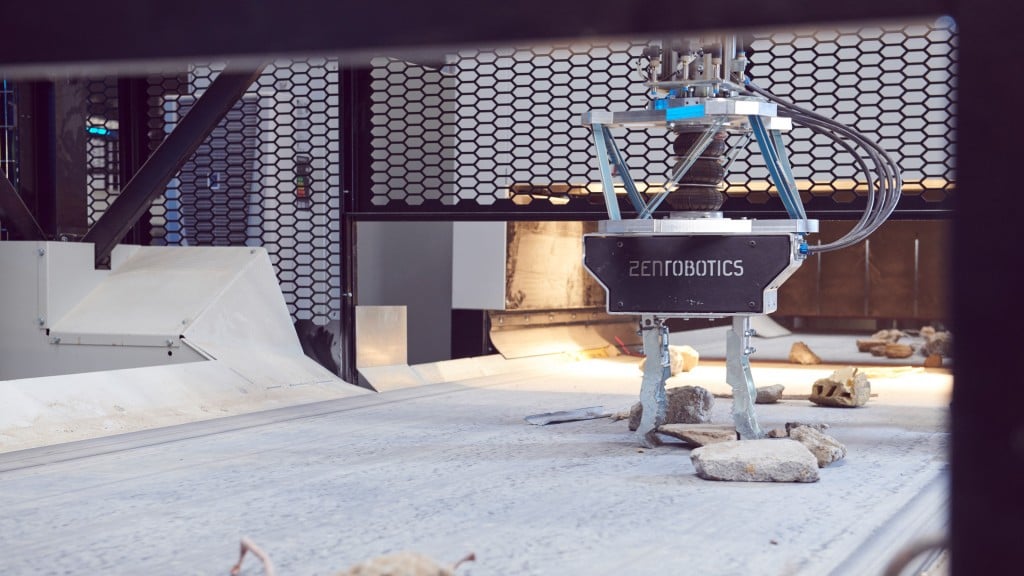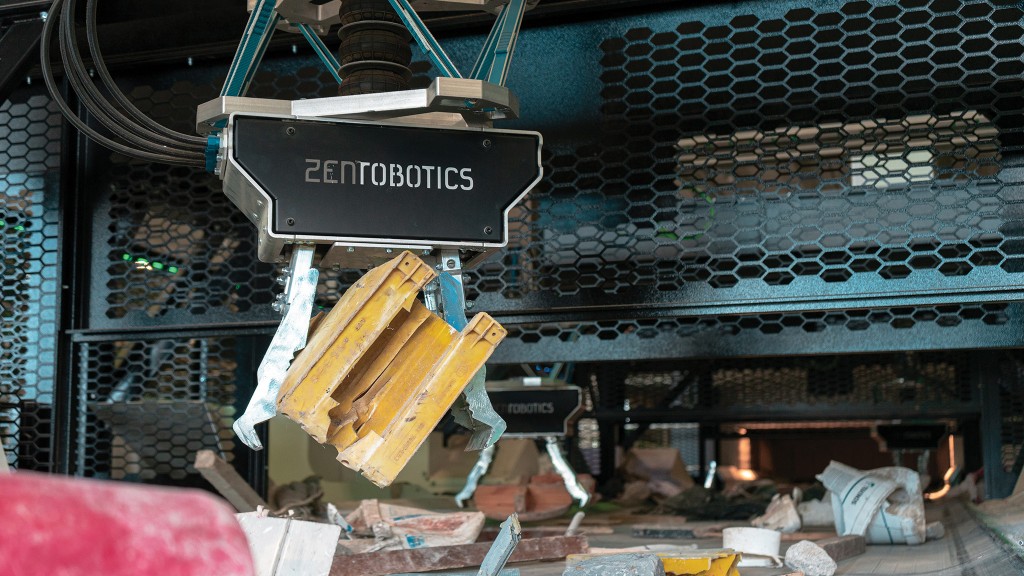
Kuljetusrinki Ltd, has ordered an artificial intelligence-based, automated robot sorting line for the processing of construction and demolition waste from ZenRobotics. Kuljetusrinki handles large amounts of waste in Helsinki, and now things are changing dramatically for them.
Jukka Aro, Kuljetusrinki's chairman of the board, Sami Aro, foreman, Jouni Lilja, director of recycling operations, and Markus Närhi , Kuljetusrinki's business director, see significant advantages in sorting waste using artificial intelligence robotics. The operation of the new robotic sorting facility will begin in Helsinki's Tattarisuo in 2023.
"We serve both the private and public sectors, and our main goal is to divert an even greater proportion of waste to recycling and thus raise the recycling rate clearly above the EU and national targets. In the past, sorting waste has not been easy, but in the future robots working independently will do the job. This is a huge improvement," says Jukka Aro.
Safety and efficiency
"I believe in a safe and modern industrial workplace where automation is used as widely as possible. Robots make sorting safe. We put a lot of effort into this because safety also means efficiency. Our entire work community is very proud of our decision to acquire this latest technology. Who wouldn't want to work in a company where artificial intelligence robots do dirty, boring, and dangerous work?", says Sami Aro.
Numerous commodities recovered in one spot
Kuljetusrinki's new fully autonomous and artificial intelligence-based sorting line includes several robots that pick clean and treated wood; non-magnetic metals such as aluminum, copper, brass and stainless steel; hard plastics such as polyethylene and polypropylene; aggregates; and more. Robots can be taught to recognize and sort almost any material. The speed of the robots is more than 6000 picks per hour. The weight of a single piece to be picked can be up to 30 kilograms.
Non-stop action
The system can be used almost around the clock. Since the operating costs are low, and the robots are autonomous, there is no reason to limit the working time of the robots. The process includes a simple pre-screening step to separate fines and light materials, after which, the rest of the material is transferred to a large-sized feed hopper, from which it is fed automatically into the sorting robots. The AI-powered robots work independently, emptying the feed hopper all day – and continuing diligently through the night.
A solution that adapts to the future
"The decision was easy. We don't need to build a traditional, complex processing plant; instead, we let robots do most of the work with an easy-to-manage automatic sorting line. As the amount of waste increases, we just add more robots. On the other hand, when we want to sort new materials, we simply train the robots to do the job. This was an easy decision for us because no other technology is as adaptable and futureproof," adds Sami Aro.
High recycling rate and reduction of carbon dioxide emissions
"A high recycling rate, energy efficiency and reducing carbon dioxide emissions are very important to both our customers and us. With this investment, we help our customers improve the recycling rate of their waste management, reduce emissions, and reach the EU's recycling rate targets. So we improve the environment with an active carbon footprint, and not just reduce the carbon footprint. This is our main goal and we are proud of it," says Jukka Aro.
Digitization
The robot system scans the waste flowing on the sorting belt with several sensors, the signals of which are analyzed by artificial intelligence. The end result of the process is a huge amount of data about the waste and its composition. The robot system can also be further developed with the help of data.
"We use this information to optimize our production and analyze waste. You can't optimize without data," says Markus Närhi. "Many of our other functions are already digitized quite well, but without robotic scanning, we wouldn't have such in-depth analytics of what we actually handle,"
International networking and product development
Kuljetusrinki's system can also be easily used for testing new technologies, as it will be located just a few minutes drive from ZenRobotics' premises in Aviapolis, near Helsinki-Vantaa Airport.
"We know there will be a lot of interest in our new line and we are happy to welcome guests from all over the world. International interaction with companies in the same field benefits all parties. We all have the same challenges to solve," adds Sami Aro.
ZenRobotics also benefits from the fact that the user is almost within walking distance.
"We are excited to have such a sorting facility near us. Kuljetusrinki's new facility facilitates our product development because new innovations can be tested there at any time. Close cooperation with our customers is important to us, " says Jarmo Ruohonen, CEO of ZenRobotics - A Terex Brand.
High-quality secondary raw materials
The market for recycled materials is constantly growing. We already use, for example, recycled plastic, metals, and cardboard in our products.
"With the help of robots, we can produce just the right kind and quality of useful fractions. EU regulation also directs us to increase material recycling. But instead of letting regulations drive change, we want to lead it ourselves. It's the best way to stay well ahead of the competition," says Jouni Lilja.



